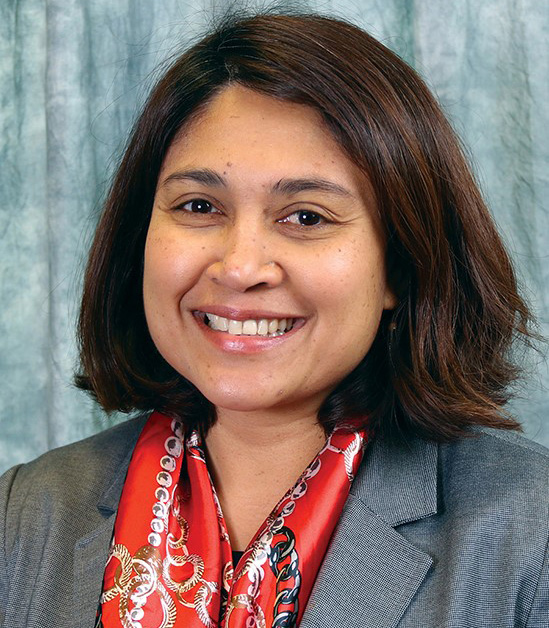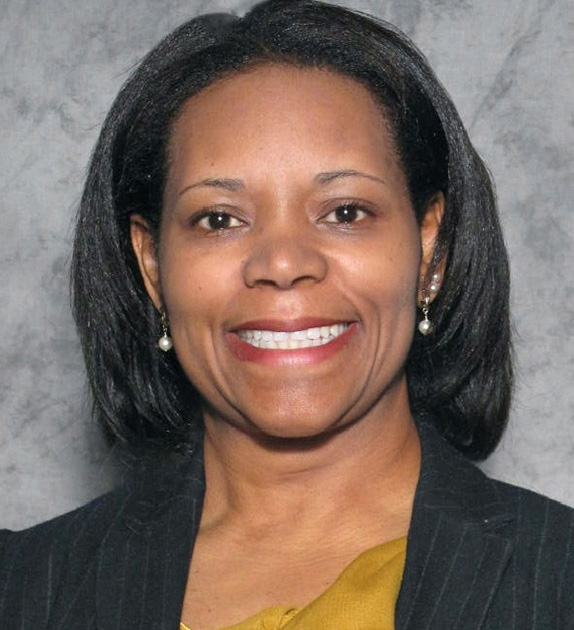NIMHD Research Helps Improve Diversity and Inclusion in the All of Us Research Program
Today, most medicine tries to treat all patients the same way—what some call a one-size-fits-all approach. But every human being is different, with their own lifestyle, environment, and genes, and the growing field of precision medicine views every person as unique. Precision medicine is already being used to help doctors find the right treatments for their patients. In the future, it could even help prevent disease.
The All of Us Research Program aims to bring that future a little closer. This ambitious research program from the National Institutes of Health (NIH) is part of the Precision Medicine Initiative, which began in 2015. All of Us plans to recruit more than 1 million people from all over the United States to share information about their health, their lifestyles, and where they live. This data will be shared with researchers, who will study it in the hopes of finding new treatments and ways to help keep people healthy.
In addition to its size, one of the many things that make All of Us unique is its commitment to diversity. Historically, research has not been inclusive of certain population groups like racial and ethnic minorities, women, and people with disabilities. This limited what the researchers could learn and led to treatments and practices that may not work for everyone.

To build a research program that truly welcomes everyone, All of Us turned to experts like Nishadi Rajapakse, Ph.D., a program director in the Division of Scientific Programs at the National Institute on Minority Health and Health Disparities (NIMHD). She is leading the Transdisciplinary Collaborative Centers (TCC) for Health Disparities Research Focused on Precision Medicine (U54) initiative, NIMHD’s first foray into the field of precision medicine. The mission of NIMHD is to lead scientific research to improve minority health and reduce health disparities.
“As the NIH focal point for research on minority health and health disparities, NIMHD has a very important role to play in the All of Us Research Program,” Dr. Rajapakse says.
NIMHD has helped shape the Precision Medicine Initiative from the very beginning, providing expertise on community engagement and health disparities. Input from Dr. Rajapakse, NIMHD Director Eliseo J. Pérez-Stable, M.D., and other staff informed the All of Us Research Program’s commitment to prioritizing both diversity and inclusivity. Diversity means making sure the study includes groups that have often been left out of research, such as ethnic and racial minorities. Inclusivity means making sure the study also actively involves other groups, such as people with disabilities, who may have substantial and unique barriers to participating.

To put these values into practice, NIMHD experts analyzed data on the ways people and communities engage with research. One of the major sources of data was a pilot study led by NIMHD awardee Consuelo Wilkins, M.D., M.S.C.I., a principal investigator for the NIMHD-funded Vanderbilt-Miami-Meharry Center of Excellence in Precision Medicine and Population Health.
The pilot program sought input from potential All of Us participants, with a special focus on groups less likely to take part in research. More than 5,000 people across the United States participated. Through surveys, interviews, in-person listening sessions, and apps, they shared their views on and experiences with research, medicine, and science.
Common themes emerged. Trust was a major obstacle for many underrepresented groups, albeit for different reasons. Some Hispanic and Latino respondents said they were less likely to participate in research if the federal government would have access to their data. Members of other groups said that unethical research in the past made it difficult for them to trust researchers today. There were abuses like the Tuskegee syphilis study, in which doctors misled African American men who had the disease and didn’t give them the right treatment. The study was stopped in the 1970s, and the government has since enacted rules to protect people who take part in research studies, but the harm caused by such unethical research cannot be erased.
Other participants said that their input and participation did not seem welcome. Respondents who are blind or deaf said researchers rarely seek their opinion—and study criteria often explicitly bar their participation.
Still other people said their biggest obstacle was just getting to the clinic or research site. People in rural areas may be too far away. Others may have trouble getting time off from work or finding transportation to the research site.
“As this new field [precision medicine] emerges, it is incredibly important that people impacted by health disparities are not left behind,” says Dr. Wilkins.
Participants’ stories and concerns are being heard and will affect how All of Us approaches engagement and recruitment—and NIMHD will be there to help. “NIMHD will continue to engage with All of Us in providing tools for the recruitment and retention of diverse populations using knowledge of socioeconomic conditions, culture, and values of communities of underrepresented and vulnerable groups,” Dr. Rajapakse notes.
Engagement and recruitment are just the beginning. People who join the All of Us Research Program will share information about many aspects of their health and lives, from their genes to their jobs. Considering all these factors together could yield important advances in addressing health disparities.
In addition to leading the pilot study, Vanderbilt is also working to keep participants’ data secure. The university was awarded the program’s Data and Research Support Center grant by the NIH Office of the Director in 2016. That means Vanderbilt University Medical Center, in partnership with other organizations, is responsible for creating an efficient and secure container for the massive dataset the program will collect.
“Precision medicine is about more than genetics,” says Dr. Wilkins, who led the pilot study. “It’s an opportunity to connect health information to public health data, such as air and water quality, and community-level data, like access to healthy foods and transportation. Bringing all these different types of data together will help everyone have the best chances to live healthy.”
Posted October 17, 2018

















